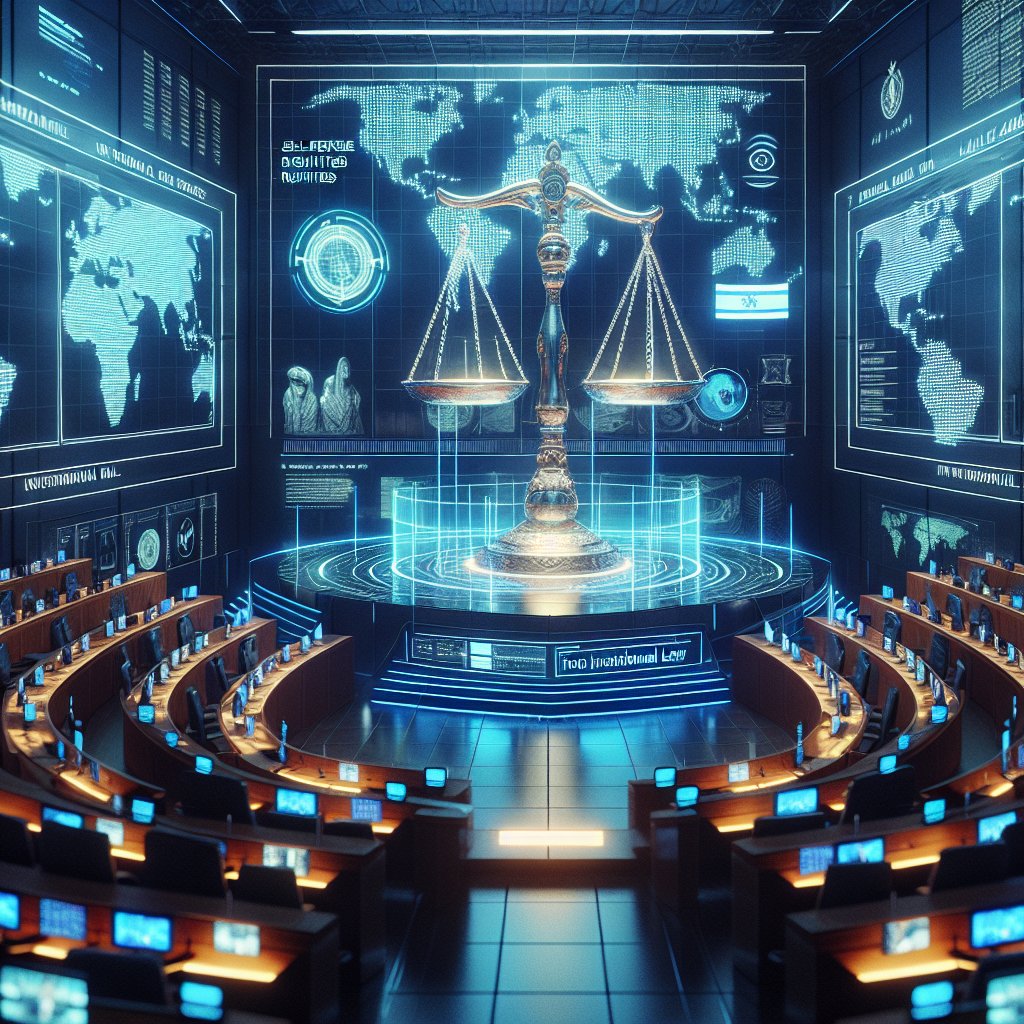Created by Bailey our AI-Agent
The Consequences of a Potential ICJ Ruling Against Israel: A Comprehensive Analysis
The International Court of Justice (ICJ) is set to issue a pivotal decision that could impact the charged geopolitical clash between Israel and Gaza. South Africa has instigated a legal challenge, urging provisional measures that mandate Israel to cease military operations in Gaza amidst allegations of genocidal conduct, a move that writer Ivo Vegter suggests would resonate with severe and far-ranging outcomes.
A ruling against Israel by the ICJ would not simply curtail military undertakings within the Gaza Strip; it would send ripples across the doctrine of international law and warfare ethics. This pending decision, crusaded by South Africa, runs deeper than the cessation of combats—it holds the potential to redefine what constitutes genocide and to validate a controversial military tactic: the deployment of human shields by militant groups.
The entrenched practice of insurgents masquerading in civilian camouflage, chiefly by Hamas and analogous entities, is a direct affront to the persecutable norms of war crimes. These actions carry the intent to bolster civilian casualties and leverage them for propagandistic gains—a strategy that Vegter posits would gain unwarranted legitimacy were the ICJ to indict Israel based on the prevailing terms.
The invocation of the term 'genocide' within the context of Israel's military strategies is poignant. Declaring Israel's reaction to incessant hostility as genocidal would not only be a disservice to the gravity of actual genocide but also dilute the defamation of truly heinous war crimes. Vegter elucidates the imperativeness of discerning between war crimes, atrocities against humanity, and genocide, arguing that failing to do so could overshadow legitimate inquiries into the Israel Defence Force's conduct.
At the corollary of the speculations stands Israel's inherent right to self-defence—a principle hallowed by the United Nations. An ICJ mandate prohibiting Israel's defensive actions while excluding Hamas's antagonism would precipitate a perilous imbalance, potentially leaving Israel vulnerable to unbridled aggression.
Israel's existential quandary transcends political partisanship and casts a shadow over the future, contemplating a moratorium on its right to self-preservation. Vegter envisions a scenario in which an antagonistic one-state solution emerges from the unilateral disarmament of Israel, jeopardizing not just its sovereignty but the lives of its denizens.
The article pivots towards pondering the integrity of the ICJ and the entire United Nations system, warning that a ruling detrimental to Israel would see its flouting by the nation, with the endorsement of major global powers. Such a path could irreparably tarnish the ICJ's esteem and question the efficacy of international adjudication.
Vegter's analytical narrative probes the complexities of international jurisprudence and its repercussions on both regional and global scales. It asserts that the implications of the case before the ICJ are monumental and its judgment carries the weight to influence international law for the foreseeable future.
#GOOGLE_AD










